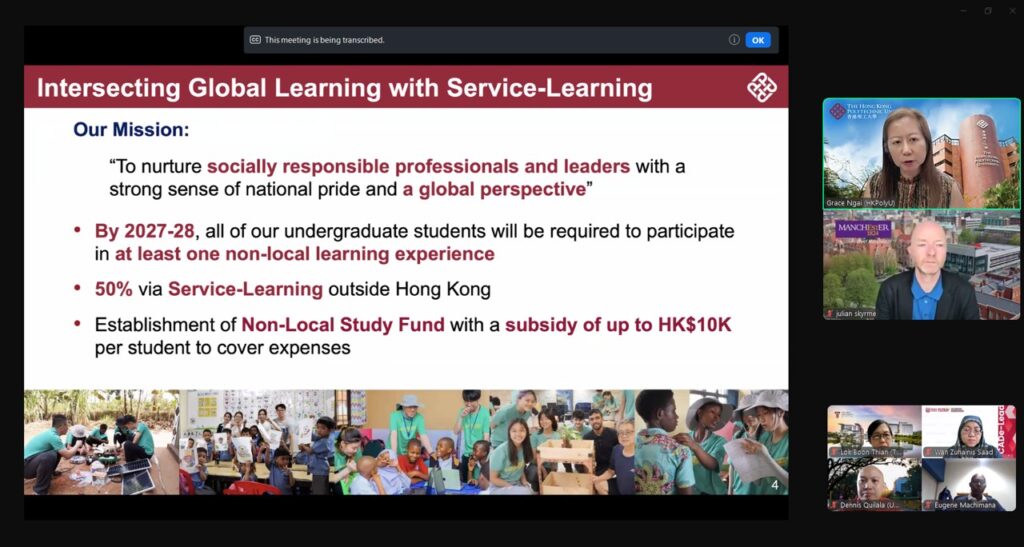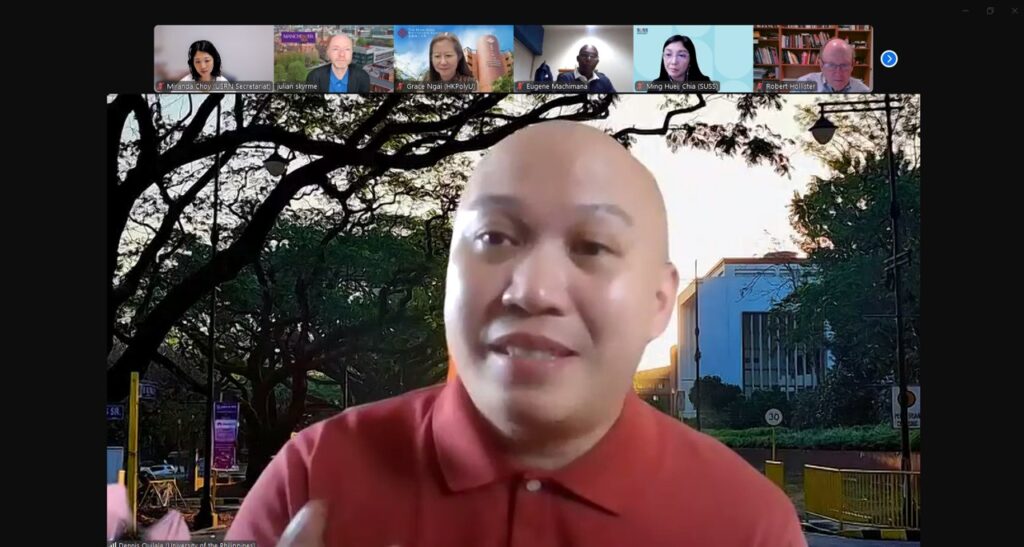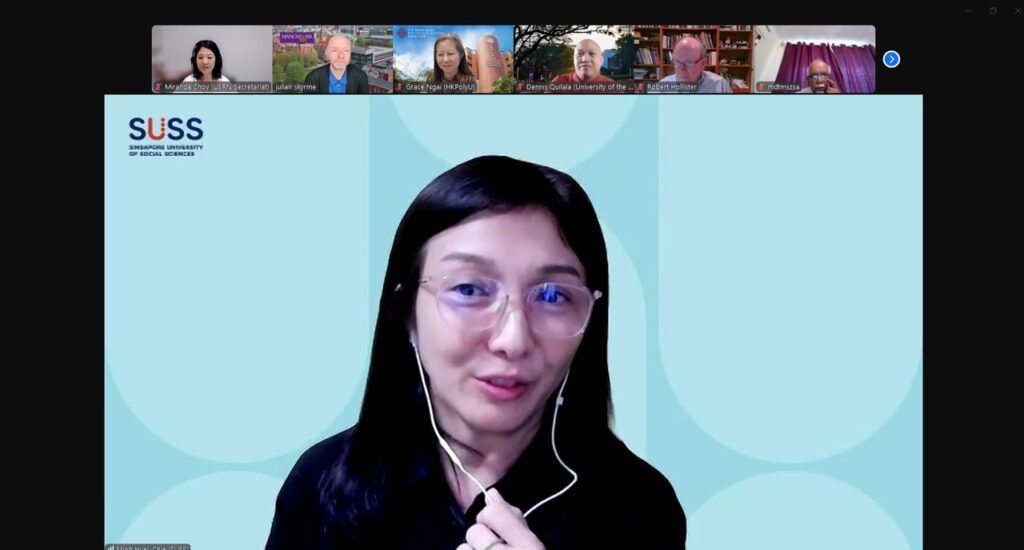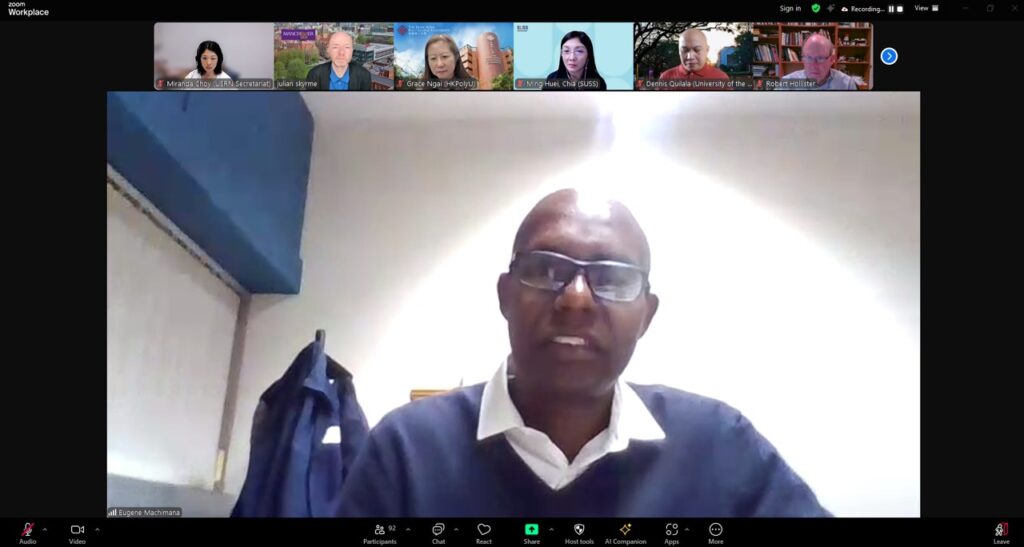
The 3rd USRN Online Forum, themed “Social Responsibility in Teaching and Learning: Service Learning and Community-Engaged Learning,” was successfully held on 23 April 2025, attracting over 90 participants from around the globe. Dr Julian Skyrme, Executive Director of Social Responsibility and Civic Engagement at The University of Manchester, moderated the event, opening with remarks on the vital role of service learning in bridging academia with societal needs.
The keynote presentation was delivered by Dr Grace Ngai, Head of Service-Learning and Leadership Office at The Hong Kong Polytechnic University (PolyU). Dr Ngai presented on the university’s ambitious goal to integrate global learning with service learning, aiming to nurture socially responsible professionals with global perspectives. She addressed challenges such as academic staff workload and cultural sensitivity in implementing international service learning programmes. Dr Ngai shared strategies to overcome these challenges, such as partnering with local universities to facilitate service learning projects. She also presented research findings showing that non-local service learning enhances intercultural competency and learning outcomes.

Respondents included Assistant Prof. Dennis Quilala from the University of the Philippines, Ms Ming Huei Chia from Singapore University of Social Sciences, and Dr Eugene Machimana from the University of Pretoria. Each shared insights into their institutions’ service learning models, highlighting both similarities and differences.
Assistant Prof. Quilala highlighted the collaborative efforts between the University of the Philippines and PolyU in implementing service learning programmes. He noted the ease of collaboration due to shared goals, such as serving underserved areas and fostering community engagement. Over two years, the partnership has grown significantly, with increased student participation and volunteer involvement. He emphasised the mutual benefits of this collaboration, aiming to enhance people-to-people relations while learning from each other’s approaches and contexts.

Ms Chia highlighted the institutionalisation of service learning at her university, where it is embedded in the core curriculum as a graduation requirement, similar to PolyU. She emphasised that the university believes education should foster intellectual growth, civic engagement, empathy, and a strong moral compass. The programme is designed to empower students to take responsible actions for real-world community impact.

Dr Machimana described the University of Pretoria’s approach, where students undergo community engagement orientation to prepare for cultural diversity and security issues before participating in service learning programmes. He stressed the importance of universities collaborating with communities as equal partners, allowing the communities to influence curricula through co-design and evaluation.

At the conclusion of the session, the speaker and respondents each shared a word that inspires their work in service learning: “Shared Humanity,” “Commitment,” “Connections,” and “Collaboration.” Dr Skyrme wrapped up the session by emphasising the importance of this work, noting that service learning is not solely about pedagogy and policy; it is deeply rooted in our values and our sense of purpose within our institutions.
Playback